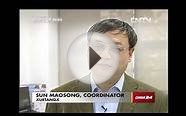Universities that offers online courses
 Some traditional college students use campus computer labs for online classes.
Some traditional college students use campus computer labs for online classes.
A study from the Pew Research Center published in August 2011 indicated that college presidents believe strongly in offering online classes and expect continued growth in this area. Seventy-seven percent of participants in the survey noted that their schools offered online courses at that time, including 89 percent of public schools.
Remaining Competitive
A key motivator for universities to offer online classes is simply to keep up with online universities and other schools that have added online classes in the early 21st century. In essence, those schools that don't offer online classes face a competitive disadvantage within a student population that needs or expects access to online courses. The 11 percent of public schools in the Pew study that indicated they don't offer online classes allow for competitive targeting from those that do.
Attracting More Students
Online classes allow a university to attract more students and a more diverse population, which also enhances the quality of education. Working adults and, in some cases, people with disabilities sometimes can't attend traditional classes. The flexibility and convenience of taking classes online opens the door for them. Plus, a university can reach a much larger geographic audience with online offerings. Without online classes, only the local population has convenient access to education.
Having Expansion Opportunities
From a business standpoint, traditional universities view online offerings as a feasible, practical way to expand and grow. This is especially true for schools that have used up all available on-campus building space or don't have the resources to invest in new building developments. Although you do normally need a technology infrastructure and support workers to manage online education, you don't need much, if any, physical expansion. You can grow virtually and in audience size without increasing your physical footprint.
You might also like








